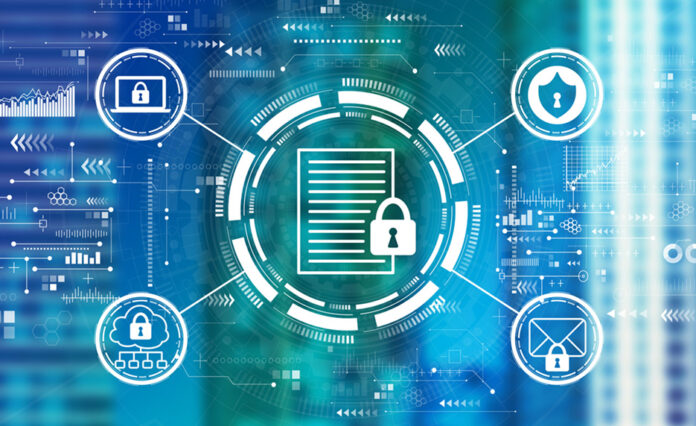In today’s digital landscape, where cyber threats are becoming increasingly sophisticated and prevalent, the role of a Certified Information Security Manager (CISM) has become crucial for organizations. A CISM is responsible for managing and overseeing the information security systems and processes within an organization, ensuring that sensitive data and systems are protected from potential threats. Let’s delve deeper into the role of a CISM and understand why their expertise is essential in today’s digital age.
The Importance of Information Security Manager
In an era where businesses heavily rely on technology and data, information security is of paramount importance. With the rise in cybercrime and data breaches, organizations face significant risks to their reputation, financial stability, and customer trust. This is where a CISM comes in. A CISM is trained to identify vulnerabilities, develop security strategies, and implement measures to safeguard an organization’s critical information assets.
Certified Information Security Manager (CISM) Certification
To become a CISM, professionals must undergo extensive training and pass the CISM certification exam. This certification is globally recognized and demonstrates an individual’s expertise in information security management. It covers four domains: Information Security Governance, Risk Management, Information Security Program Development and Management, and Information Security Incident Management. By obtaining the CISM certification, professionals showcase their commitment to upholding the highest standards of information security.
Role and Responsibilities of a Certified Information Security Manager
As a Certified Information Security Manager (CISM), individuals are entrusted with various responsibilities to ensure the effective management of information security within an organization. Let’s explore some key roles and responsibilities of a CISM:
1. Developing Information Security Policies and Procedures
A CISM is responsible for developing and implementing information security policies and procedures that align with industry best practices and regulatory requirements. These policies serve as guidelines for employees to follow, ensuring the protection of sensitive data and systems.
2. Conducting Risk Assessments
Identifying and assessing potential risks is a crucial aspect of information security management. A CISM is responsible for conducting risk assessments to identify vulnerabilities and develop strategies to mitigate those risks. This involves analyzing the impact and likelihood of potential threats and implementing controls to minimize the organization’s exposure to risk.
3. Managing Security Incident Response
In the event of a security breach or incident, a CISM plays a vital role in managing the organization’s response. They lead the incident response team, coordinate efforts to contain and mitigate the impact of the incident and ensure that appropriate measures are taken to prevent similar incidents in the future.
4. Overseeing Security Awareness and Training Programs
A CISM is responsible for promoting a culture of security awareness within the organization. They develop and implement training programs to educate employees about information security best practices, ensuring that everyone understands their role in maintaining a secure environment.
5. Collaborating with Stakeholders
Information security is a collaborative effort that requires coordination with various stakeholders. A CISM works closely with IT teams, senior management, legal departments, and external partners to ensure that security measures are effectively implemented and aligned with the organization’s goals and objectives.
6. Staying Updated with Emerging Threats and Technologies
The field of information security is constantly evolving, with new threats and technologies emerging regularly. A CISM must stay updated with the latest trends and developments in the industry to effectively protect the organization’s information assets. This includes attending industry conferences, participating in training programs, and continuously expanding their knowledge base.
The Benefits of Hiring a Certified Information Security Manager
Organizations that hire a Certified Information Security Manager CISM can enjoy several benefits. Let’s explore some of these benefits:
1. Enhanced Security
By having a CISM onboard, organizations can enhance their overall security posture. A CISM’s expertise in identifying vulnerabilities, implementing controls, and managing security incidents significantly reduces the organization’s risk exposure.
2. Compliance with Regulations
Many industries are subject to stringent regulations regarding the protection of sensitive data. A CISM ensures that the organization remains compliant with these regulations, avoiding potential penalties and reputational damage.
3. Improved Incident Response
In the event of a security incident, a CISM’s experience in managing incident response can significantly minimize the impact and downtime. Their expertise in containing and remedying incidents ensures a swift and effective response, reducing the financial and reputational damage to the organization.
4. Increased Customer Trust
With the growing concern around data privacy and security, customers are more likely to trust organizations that prioritize information security. By hiring a CISM, organizations can demonstrate their commitment to protecting customer data, thereby enhancing trust and loyalty.
5. Competitive Advantage
In today’s digital landscape, where security breaches are a common occurrence, organizations that prioritize information security gain a competitive advantage. By hiring a CISM, organizations can differentiate themselves from competitors and attract customers who value security and privacy.
Conclusion
In today’s digital age, the role of a Certified Information Security Manager CISM is more critical than ever. A CISM’s expertise in managing information security, developing policies, conducting risk assessments, and overseeing incident response ensures that organizations can effectively protect their sensitive data and systems. By hiring a CISM, organizations can enhance their overall security posture, comply with regulations, and gain a competitive advantage in the market. Embracing the expertise of a CISM is a proactive step towards safeguarding an organization’s future in an increasingly digital world.















